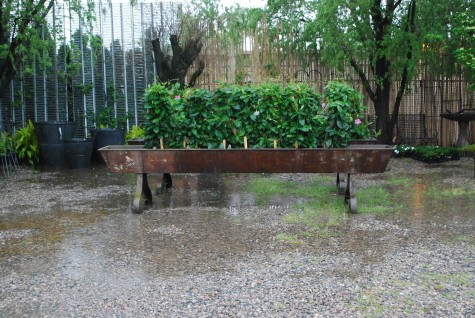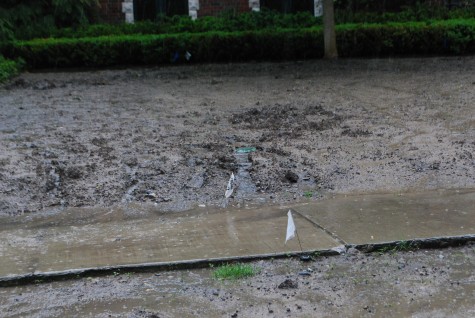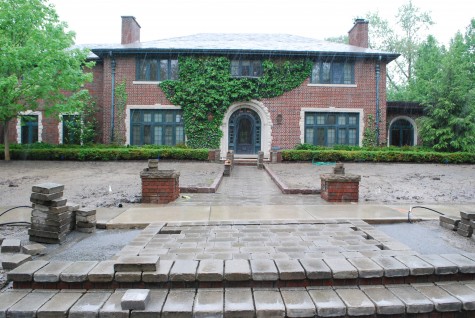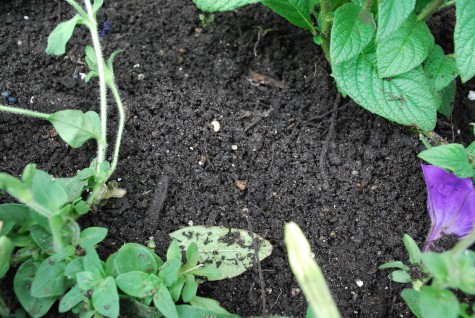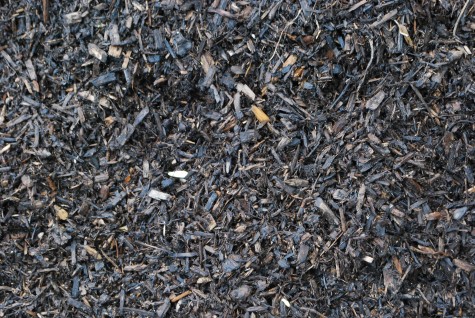May 25 is not my idea of a great time for a chilly rain day, never mind the cold rain for days that we have had. Oh I know, Memorial Day, which we celebrate four days from now, traditionally marks the earliest that I can plant tender plants in my zone. Every year, I think there is bound to be some variation in that regularly scheduled programming that will let me get out earlier than usual. Every year, I see that hope dashed.
May is a perfect time to plant new perennials, divide old ones, and move plants. There are of course exceptions. Move and divide peonies and oriental poppies in the fall only. But cool temperatures and regular rain help transplants and new plants get established. But what we have now is soil soup. A good client stepped off the driveway this morning into a new bed, thinking she would walk across the dirt. Almost knee high in mud, she had to be rescued. What is mud? Soil suspended in water. I am thinking a lot about soil today. I have time.
Great soil is a special dish gardeners nurture or prepare for their plants. Natural topsoil , usually present in the top 8 inches of the earth, is teeming with bacteria, micro organisms, minerals, and organic matter. There is so much bacterial activity in soil it is correctly understood to be living. Soil berefit of organic material and humus is unfriendly to the nutrient uptake of the roots of plants. By this, I mean unfriendly to life. The iridescent, airless, non-draining and stinking blue clay that gets excavated from future basements-not so much living goes on there. This urban landscape project-that clay that sits on top, and does not drain is an issue. The water from our relentless rain is like a lake sitting on top of the clay in this yard.
Great soil is easy to identify. It smells earthy, truffle-like, humid; great compost laden soil smells great. It holds moisture, but drains surely. Loaded with air, it crumbles to the touch. Should your soil seems to be a perfect material for clay pots, do something to leaven that clay. If your sandy soil runs through your fingers, invest in a giant compost pile, or a collection of succulents. You are a gardener-so you were born with the hope gene. Nurture your soil.
There are those to say that native soil cannot be changed to any appreciable degree, but I am certain my soil at home is vastly better than it was 16 years ago. I mulch all of my beds with bark fines-ground hardwood bark mulch. It disintegrates in a season or less, adding lots of organic material to my soil. No wood chips, please. Wood, or cellulose, requires the action of bacteria that feed on nitrogen to live in the decomposition phase. Any plant mulched with wood chips will soon look nitrogen-starved. Bark, or lignin, readily breaks down, and will nurture your soil. The smaller the bark particulates, the faster decomposition will occur. Via the bark fines, I load my soil every year with organic material.
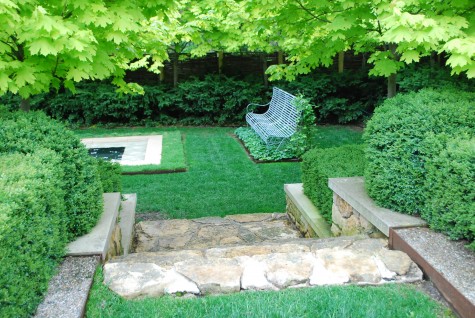
My plants seem to like this regime. My boxwood flush 8 inches of growth every spring. My European ginger is thriving. My Princeton Gold maples leaf luxuriously. The yews under the maples-flushing new growth everywhere. My lawn is thick and green. None of these plants get any fertilizer. I just make sure that the soil in which they grow is loaded with organic matter and air. My enriched soil living and breathing-see the result above.
